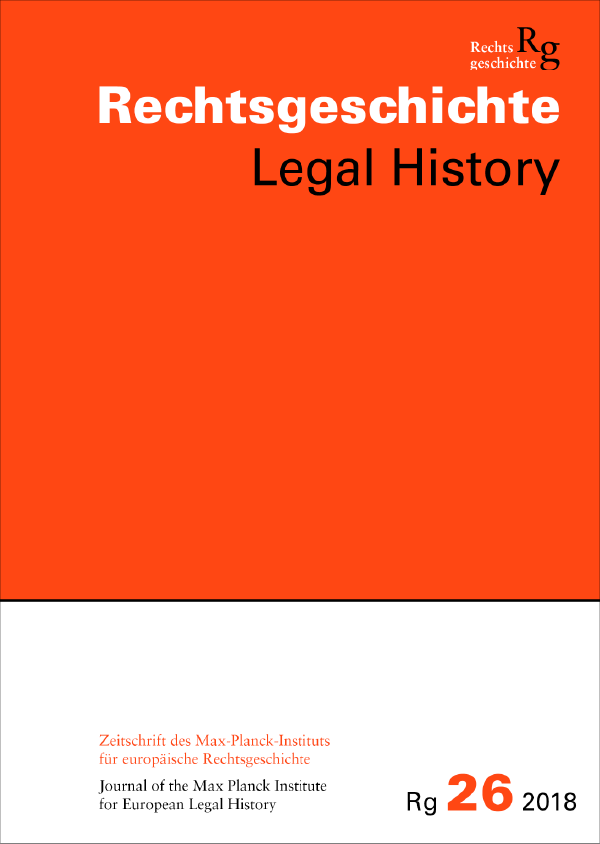Matías De Paz and the Introduction of Thomism in the Asuntos De Indias: A Conceptual Revolution
DOI:
https://doi.org/10.12946/rg26/236-262Schlagworte:
School of Salamanca, Thomism, infidels, dominion, rule, just war, conceptual historyAbstract
Most of the writings dedicated to assessing the contribution of the Spanish Second Scholasticism to the controversial issue of infidels’ dominion began their analyses with the well-known Francisco de Vitoria’s Relectiones (1532). This article offers a reconstruction of the history of the theological and juridical debates on this key issue on the Iberian Peninsula since the late 13th century. Special attention is paid to friar Matías de Paz, who was asked to offer his advice on the early patterns of rule and domination imposed on the Native Americans at the Junta de Burgos (1512), introduced to the discussions about asuntos de Indias the Thomist conceptual framework later employed by Vitoria, Soto, Suárez and many other prominent members of the so-called School of Salamanca.The article shows that it was, in fact, De Paz who first considered the Amerindians infidels affected by an »invincible ignorance«, and he tried to curb some of the many abuses committed against them by applying the distinctions between different types of dominium and principatus.
Downloads
Veröffentlicht
Zitationsvorschlag
Ausgabe
Rubrik
Lizenz
Copyright (c) 2018 Autor/in

Dieses Werk steht unter einer Creative Commons Namensnennung - Nicht-kommerziell - Keine Bearbeitung 3.0 International -Lizenz.





